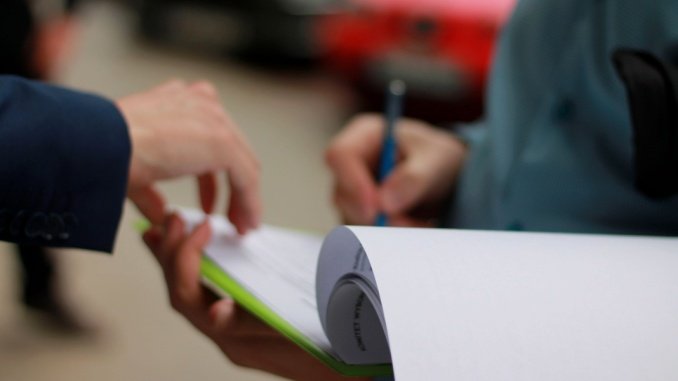arizona voters
Arizona Ballot Battle: Voters Face Off on Signature Gathering Rules with Prop 134

By Staff Reporter |
Arizona voters will face a pivotal decision this November regarding Proposition 134, which mandates geographic diversity in the signature-gathering process for ballot initiatives. Passed along partisan lines as Senate Concurrent Resolution 1015, this proposed measure aims to ensure that signature gatherers obtain support from all 15 counties rather than primarily from the state’s most populous areas.
The current law allows signatures to be collected from any part of Arizona, often benefiting urban centers like Maricopa County, which houses nearly 60 percent of the state’s 4.1 million registered voters. Proponents argue that this can marginalize rural voices, leading to a skewed representation in the ballot process.
If implemented, Proposition 134 would require signature gatherers to gather 10 percent of registered voters from each of the state’s 30 legislative districts for statewide initiatives, and 15 percent for constitutional changes. Referendums would necessitate five percent from each district. Currently, the requirements stand at a blanket 10 percent for statewide initiatives and similar thresholds for other types of measures.
Supporters of the proposition include organizations such as the Arizona Farm Bureau, the Arizona Free Enterprise Club, and the Goldwater Institute, which operates the AZ Ballot Fairness initiative. The Arizona Farm Bureau highlighted the need for rural representation in the ballot process, stating that relying on populous areas undermines the voices of diverse communities.
“Right now, rural Arizonans are completely ignored,” a spokesperson for the Farm Bureau stated. “It’s far too easy to collect signatures in densely populated areas without considering the diverse interests of our state.” This sentiment underscores the call for broader community engagement in legislative decisions.
On the other hand, opponents, including the Arizona Forward Party (AFP) and the Arizona Public Health Association (APHA), argue that the proposal could obstruct the legislative process and burden signature collection efforts. AFP contended that a shortfall in even one district could derail popular initiatives, regardless of their state-wide support.
APHA raised concerns that the proposed requirements would hinder swift public health advocacy efforts. “Public health campaigns rely on the ability to mobilize quickly,” an APHA representative stated, highlighting the potential delays in addressing urgent health issues.
Critics assert that while Proposition 134 aims to enhance representation, it could paradoxically diminish it by introducing strict geographic requirements that may complicate the qualitative nature of support across the state.
Arizona stands among 26 states permitting citizen-initiated ballot measures, with a notably low number implementing signature distribution requirements. As the voting date approaches, the discourse surrounding Proposition 134 continues to intensify, illuminating the delicate balance between urban influence and rural representation.


















